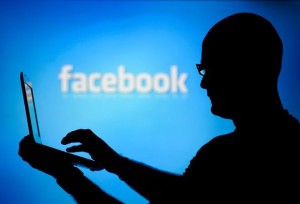
London, People with fewer friends on Facebook raise more money for charity than those with lots of connections on the social networking site, a new study has found.
Professor Kimberley Scharf at the University of Warwick found a negative correlation between the size of a group and the amount of money given by each donor – with the average contribution by each person dropping by two pence for every extra connection someone had on Facebook.
The research, which analysed data from JustGiving.Com, builds on and supports earlier findings, published in the International Economic Review by Scharf, that said large social groups are less likely to share information about charitable causes when compared to those who are part of smaller circles – and that this results in less fundraising success.
In that paper, the phenomenon of ‘free-riding’ on information sharing is the main driver behind the findings – when people are part of a larger social group, they feel less of a need to share information about well performing charities because they’re expecting other friends to share the information.
This concept of free-riding also extends to giving in social groups – friends expect other friends to stump up most of the cash and so they don’t bother themselves, Scharf said.
“The problem is that everyone thinks the same thing and therefore the actual amount of money that’s donated is less than it would have been had fewer friends been asked in the first place,” Scharf said.
Scharf also discovered that the amount a person can raise doesn’t only depend on the number of friends they have online – those who complete tougher fundraising activities generate more cash.
“Whilst running is by far the most popular event on JustGiving, it is in fact individuals who complete triathlons that typically attract the largest number of donations and raise the most money in total,” she added.
“So doing something physically demanding and asking a small group of friends for their support is much more effective than relying on donations from lots of people for what would be perceived as a relatively less exerting activity,” said Scharf.
The research supports the idea that motives for giving in online platforms, such as JustGiving.Com, could be driven by “relational warm-glow,” that is, people are motivated by the idea of helping their friends achieve their fundraising goals – it makes the fundraiser feel good and this in turn impacts on the people who’ve made the donations.
It is possible that donors have a more intense warm glow experience when the fundraiser exerts more effort, such as could happen when he or she fundraises by taking part in a triathlon instead of by taking a leisurely stroll, and this could then transpire into larger donations.
PTI




 Driving Naari Programme launched in Chandigarh
Driving Naari Programme launched in Chandigarh






























